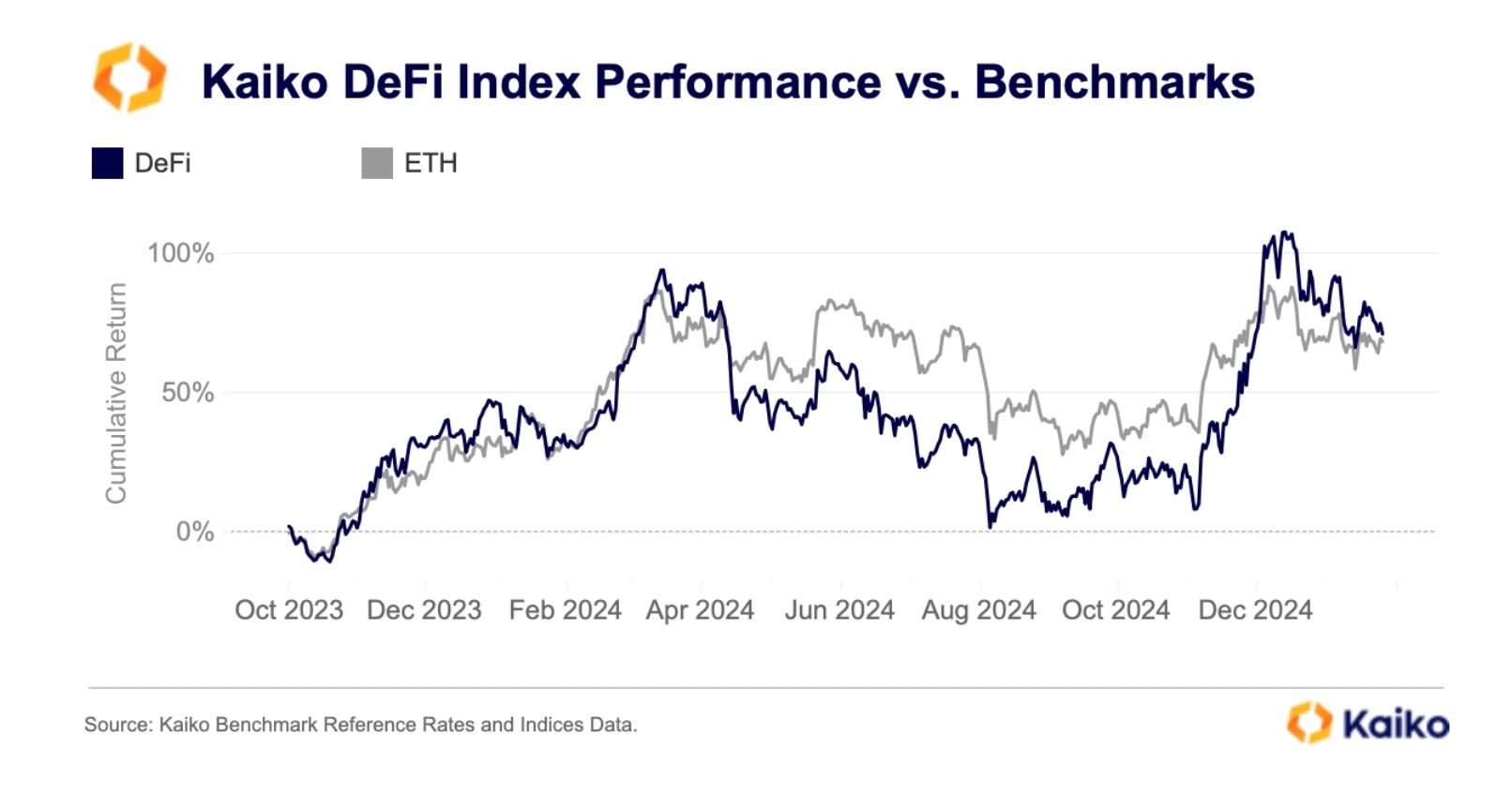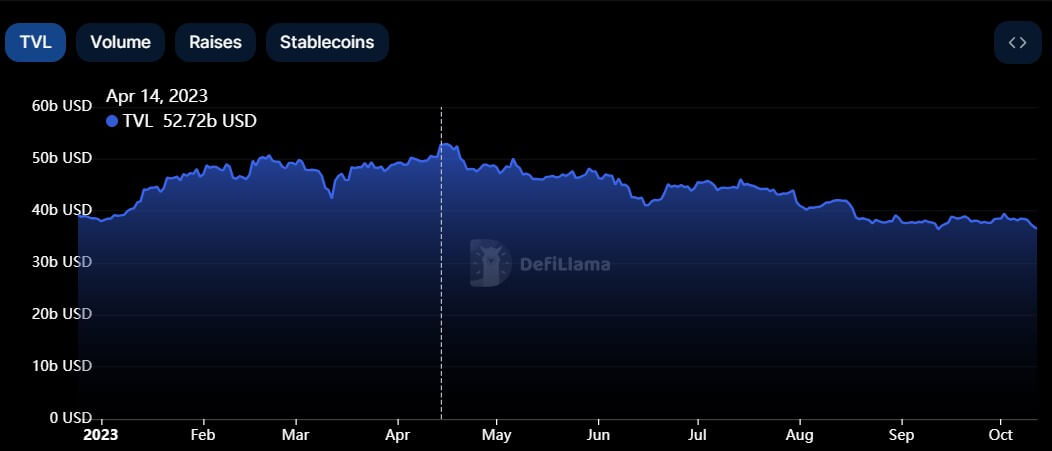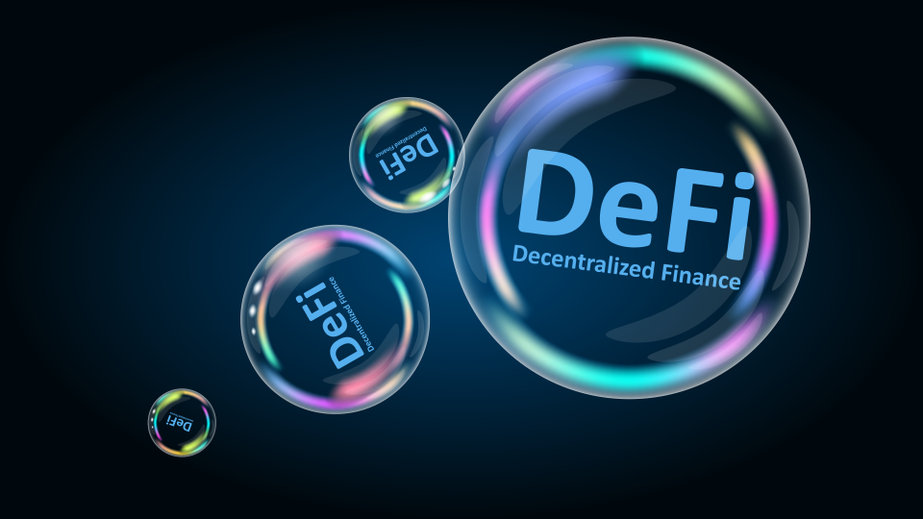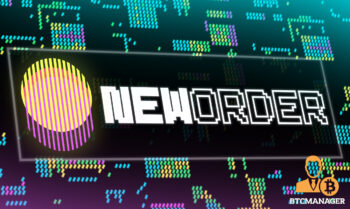
2022-7-23 14:27 |
Decentralized Finance (DeFi) has experienced explosive growth in recent months. As crypto lending and decentralized liquidity provision continue to revolutionize the FinTech space, there are many projects built around the DeFi model.
As an investor, it’s always advised to analyze some critical metrics of a coin before pouring money into it. Metrics such as total capitalization and volume traded are essential factors.
In this write-up, we bring you the eight best low-cap DeFi coins that you should consider investing in. Let’s get started.
What is Low Cap DeFi?Low-capitalization decentralized finance are cryptocurrency projects that are still in their early stages of development and therefore have a relatively low market cap. Compared to other established projects, low cap DeFi have a low supply of coins in the market.
The projects are of great value and play a key role in the evolution of the financial sector and especially considering the fact that DeFi is a fast-growing sector. The low cap coins are considered a hidden gem due to their potential to grow highest profits.
Below are top low cap DeFi projects that are playing a key role in the cryptocurrency industry.
TrustSwapTrustswap is a decentralized finance (DeFi) platform developed to help crypto holders exchange their assets securely, timely, and reliably. The platform removes the need for middlemen like lawyers and banks but instead relies on smart contracts and a community of validators and market makers who complete transactions and ensure there is sufficient liquidity.
The project has a native cryptocurrency $SWAP, which was launched in July 2020. Trustswap has been very popular since its launch and has ranked among the top most searched projects on Coingecko.
Trustswap has been dubbed the new DeFi Giant due to its growing popularity fueled by its revolutionary products in the DeFi space.
The launch of the TrustSwap Launchpad which allows slow-release of the $SWAP tokens saw the token rise by 239.6%.
Market-cap (Aug 27, 2020) – $53,907,085CoinGecko Ranking (Aug 27, 2020) – #171Development activity ranking – #312Trustswap has four products that it says will revolutionize the DeFi space. These are:
TrustSwap LaunchpadCrypto SubscriptionsEscrow ServicesWrapping as a Service TrustSwap LaunchpadThe TrustSwap Launchpad allows slow release of the tokens for sale to protect small investors from being outpaced by large investors. This product ensures the tokens are spread out proportionately and to prevent putting the assets into the hands of a few individuals or entities.
TrustSwap Launchpad is seen to be a game changer in security and fundraising especially as many DeFi projects turn to Uniswap for marketing and listing.
Crypto SubscriptionsTrustSwap allows online retailers to integrate crypto subscriptions on their websites using an Ethereum-based token.
Escrow ServicesTrustSwap is a decentralized platform and does not rely on middlemen. It is a fully-audited, secure, and non-custodial platform.
Wrapping as a ServiceWith TrustSwap, crypto holders can wrap any token and use it on the Ethereum network.
EthverseEthverse is a MetaVerse built on the Minecraft gaming engine and powered by blockchain. The decentralized platform allows users to have full control over their assets and be part of the crypto economy within the Ethverse ecosystem.
ETHVerse has integrated the Minecraft and Ethereum blockchain to come up with a hybrid interactive and decentralized virtual platform. Minecraft is one of the world’s leading games, with more than 200 million pieces sold as of May 2020. The gaming platform currently has around 132 million active players.
ETHVers has created an immersive platform and experience that allows users to monetize their Minecraft assets and services.
ETHVerse is backed by the native token ETHV, which also powers the ETHVerse ecosystem. The token is used for various functions, including buying and selling assets, paying for DeFi banking services, adding new cities, and paying for gaming.
ETHVerse’s key feature is allowing users to take out crypto loans with land and other physical assets as collateral. In addition, crypto holders can lend out their idle tokens and earn interest.
While many projects have focused on integrating blockchain to Minecraft, many have concentrated on adding compatible crypto wallets. ETHVerse has gone a step further by building a complete Minecraft ecosystem with key features like DeFi Banking, the marketplace, payments, and roleplay, among others.
Market-cap (Aug 27, 2020) – $9,712,906CoinGecko Ranking (Aug 27, 2020) – #357Development activity ranking – #485ETHVerse is creating a new gaming environment that allows players to own and have full control over their items, buy and sell land, and take out crypto loans backed by the land as collateral.
While Ethverse is still a newcomer in the DeFi space, the product is expected to attract a lot of attention and much market cap once the beta is released.
KardiaChainKardiaChain is a blockchain-based platform built specifically for governments and enterprises as a way of achieving mass adoption. The platform is built on the philosophy that government and business support for blockchain will translate to mass adoption.
The main objective behind KardiaChain is to increase blockchain entrenchment in governments and enterprises as a way of increasing mass adoption. The idea seems to be resonating well with the blockchain industry, and the product has seen unparalleled growth and market performance in recent months.
KardiaChain is working with services providers both in the public and private sectors to help decentralize their operations. The project has two main features; Kardia Unified Smart Contract Language (KSML), which makes smart contracts built on KardiaChain compatible for listing on other protocols, and Adoption Decentralized Application (ADAPP), which helps agencies using KardiaChain to decentralize their products and services.
KSML is based on Dual Node technology which facilitates cross-chain communications between private and public blockchains regardless of protocol.
KardiaChain’s growing popularity has seen it bag a number of high-value partnerships, including Vietnamese National TV, with which they partnered to launch new blockchain features in their sports App – ON Sports, that uses KAI tokens to facilitate on-chain transactions on “ON Sports.
KardiaChain has also partnered with Japanese Proxy Shopping Service SpeBid, which has started accepting KAI tokens for payment of goods and services.
Additionally, KardiaChain has partnered with Mai Linh Corporation to integrate $KAI into its EPOS system. Mai Linh launched several contactless multi-utility Green Cards that use NFC technology and are powered by $KAI. The cards are used by Mai Linh taxi customers to top up, make payments, and check transactions.
Bella protocolBella Protocol is a collection of open financial tools that seeks to increase mass adoption and accessibility to DeFi systems by integrating some aspects of banking. The product’s main features and offerings include:
A lending protocolA customized robot-type advisorA yield farming toolA savings accountThe protocol brings together existing DeFi protocols into an aggregated user interface that seeks to improve accessibility and improve user experience.
Bella allows DeFi users to conduct yield farming in a single interface without having to juggle between protocols. The protocol was built by the ARPA project team to simplify the user experience, allow users to deploy assets, and earn yields. ARPA is a layer-two distributed system built on top of Ethereum and used for asset storage and inter-chain operability.
Bella has a global presence, and its early supporters mainly comprised members of the ARPA community.
Bella is backed by BEL, the native cryptocurrency that powers the Bella ecosystem and is used for various functions like fee payment, offering discounts, staking, voting, and governance.
Beefy FinanceBeefy Finance is a yield optimization tool that helps users to maximize returns from yield farming. Yield farming is the process of lending or staking crypto assets in liquidity pools and gaining rewards and returns in the form of more tokens.
Liquidity providers (LP) are incentivized to lock up their assets in smart-contract-based liquidity pools using various incentives like a governance token, interest from lenders, or a percentage of transaction fees.
On the other hand, yield optimization is the process of using data analysis and optimization tools and techniques to maximize returns from Yield farming projects. In many DeFi projects, yield optimization is done by yield aggregators that use algorithms to yield optimal returns.
As opposed to its peers that rely on algorithmic strategies to optimize APY, Beefy.finance automates the entire process of yield farming.
Beefy Finance relies on a system of vaults that act as investment decisions and implement smart contract-based strategies. The vaults serve the following functions:
Allow users to access collaterals used to take out crypto loansOffer liquidity in the form of crypto assetsManage collateral to reduce chances of liquidationGenerate yields and compound returns from their assets Pickle FinanceThe DeFi has seen an increase in food-themed projects in recent days with Pickle. Finance being the latest addition. Pickle.finance is a yield farming protocol that brings stablecoins closer to their peg.
The platform helps stablecoins maintain their $1 pegs. Due to market fluctuations, volatility of stablecoins, and limitations in financial and monetary policies, many stablecoins have drifted slightly from their pegged fiat currencies.
The platform was launched in September 2020, and within its first trading week, it amassed over $31 million in locked value and a daily trading volume of around $50 million.
Instead of juggling multiple stablecoins in search of better returns, Pickle Finance empowers farmers to optimize their returns by supplying liquidity in the four most popular stablecoins: DAI, USDT, USDC, and sUSD.
Pickle Finance relies on its native token PICKLE as an incentive and its vaults and governance structure to bring stablecoins closer to their pegs. The protocol awards Liquidity Providers with PICKLE tokens for swapping different stablecoins. In addition, the protocol has another feature called Pickle Jars which apply various strategies to bring stablecoins closer to their peg.
Harvest FinanceHarvest Finances helps crypto holders to maximize returns by easily accessing trading platforms with the highest returns or strategies that guarantee the best returns. The platform scans several Decentralized Finance (DeFi) protocols to get those that offer the most advantages to yield farmers.
The automated yield farming protocol is mainly designed for users seeking to put their digital assets in high-producing yield farming opportunities. This yield optimization process is automated, allowing crypto holders better manage their assets in DeFi platforms.
Harvest Finances has its native token, FARM, which is used as a governance token and a cashflow coin used for transaction purposes. The FARM token empowers its holders to vote on various proposals and earn a 5% fee from the operations of Harvest Finance.
Harvest was mainly created for convenience to allow users to easily access DeFi protocols with high returns. The platform works by taking members’ deposits and automatically channeling the high-yield DeFi protocols. The end goal is to allow users to apply the latest farming techniques to optimize yield and increase their annual percentage yields (APYs).
Cream FinanceCream Finance is an Ethereum-based platform that offers crypto lending and borrowing based on the Compound Finance protocol.
Cream is aimed at creating an open and inclusive, and fully decentralized financial system. Users can lend and borrow crypto assets in a permissionless, trustless, and fairly-distributed ecosystem. The protocol performs four major functions:
Liquidity miningLending and borrowingGovernanceAutomated market maker protocolsThe Cream Finance liquidity mining feature allows users to stake their assets in liquidity pools and yield returns of up to 200% in a select protocol. The protocol incentivizes users to stake their assets in liquidity pools with a reward of a portion of the trading fees in the Cream Finance Swap (DEX).
Cream Finance Swap is Cream Finance’s cryptocurrency decentralized exchange platform that allows users to access liquidity and exchange different cryptocurrencies.
Cream Finance will eventually transition to a DAO, which is still under development. According to the company, the DAO will borrow and benchmark features from other leading DAOs like Aragon.
CreamY is an automated market maker on Cream Finance, which allows users to swap different assets at high returns. The AMM allows stablecoin-stablecoin exchange as well as swaps between wrapped versions of Bitcoin and Ethereum.
CREAM is an ERC-20 and Cream Finance’s token native cryptocurrency and is used for various functions within the Cream Finance ecosystem like transactions, lending, borrowing, and supplying liquidity in various protocols.
The tokens are also used for governance purposes, allowing holders to vote on various proposals that shape the future of the protocol.
ConclusionAlthough the crypto market has shrunk slightly, many low market-cap projects have remained resilient with ground-breaking innovations, market acquisitions, and partnerships. Despite being in their infant stages, many of these projects have attracted significant attention and gained an impressive following.
With the DeFi still showing a bullish trend, these low-cap projects are expected to pick up more steam and gain more ground in terms of market share.
In case you are looking for more DeFi coins, below is our list of reviews:
Uniswap Review – Can I get scammed on Uniswap?Pancakeswap Review – Should I invest in PancakeSwap?Aave vs Compound: The Battle of DeFi Lending ProtocolsBest DeFi Coin on Binance Smart ChainThe post Best Low Cap DeFi Coins – Best Upcoming DeFi Projects appeared first on CaptainAltcoin.
origin »Bitcoin price in Telegram @btc_price_every_hour
Defi (DEFI) на Currencies.ru
|
|









